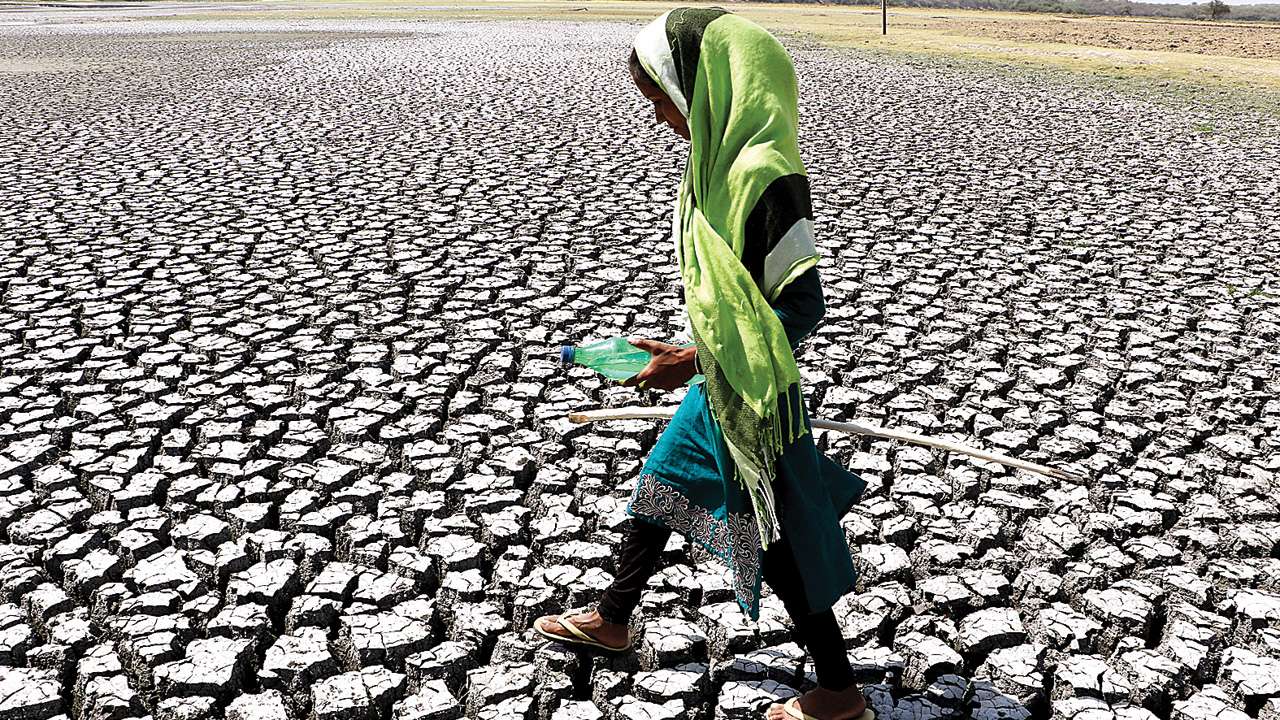
There is a new word in town. For the middle class in north Bihar’s Darbhanga, it’s a word that has come to define their lives these days: Submersible.
Submersible or submersible water pumps are in huge demand all across Darbhanga and elsewhere in north Bihar. With the falling water table, hand pumps and old water pumps are no good.
There is no water in the taps installed by the state. Water tanks for the supply of tap water were built across Darbhanga a few years ago, but are seldom functional.
In every street corner, water dominates all conversation. Submersibles are in demand and the waiting time for their installation is anywhere between seven days to several weeks. The mechanics who install them have suddenly acquired celebrity status. Mahesh, a mechanic in his fifties, gets 10 inquiries a day about submersibles.
The cost of installing a submersible water motor is anywhere between Rs 55,000 to Rs 80,000. The process of the installation itself needs a lot of water - more than 7,000 litres.
Those who can’t afford it are just lowering their old pumps, hoping that it would squirt out water from the depths below. But with powerful submersibles around them, they are unlikely to be very effective. The poor largely depend on hand pumps and with the water table decreasing with every passing summer, the future doesn’t look good.
The deepening water crisis in Darbhanga is symptomatic of many things, but especially highlights the poor management of our natural resources by the state and its people.
Debates about climate change and environmental degradation are often relegated to the melting of the polar ice and extinction of penguins. People forget that the problem has already arrived, and is knocking vigorously on their doors. With rising temperatures, deforestation and unplanned construction, we are creating a recipe for an assortment of natural disasters.
Darbhanga was once littered with ponds and it was hard to imagine a water crisis 30 years ago. A town full of greenery and open fields, now hardly has any trees left. Narrow roads and big cars signify the kind of unplanned and unsustainable development that is likely to cause havoc. And the symptoms are already here.
Aggressive construction, converting ponds, open areas and turning wetlands into concrete jungles. More-than-needed concrete has resulted in decreasing capacity of the land to retain water, resulting in the falling water table.
Many are looking towards the heavens for help. A good monsoon will help replenish groundwater, keeping the supply of water in their taps and hand pumps flowing till the next summer. But everyone knows that neither the rain nor the submersible is a sustainable solution. A submersible might make their lives comfortable for a few years, but it is merely delaying the water crisis.
Ironically, Darbhanga is also threatened with floods, an imminent peril. Floods have made water management an important issue in Bihar. Chief minister Nitish Kumar has often talked about the issue, especially with respect to water being released from neighbouring Nepal. But day to day management of water resources has not really been a priority of the government till now. Perhaps everyone was waiting for a crisis like this to happen.
Darbhanga is not a smart city. One can even question if it’s a city at all. Regardless of the designation, Indian cities need to become smarter in their management of natural resources. The state needs to step up their efforts. Perhaps, the government is waiting for this to turn into a humanitarian crisis or an electoral issue.
Right now, there is a mad scramble among denizens of Darbhanga - and cities and towns across India - to ensure that there is enough water in their taps to last the summer. Not unnaturally, everyone is desperate to succeed.
Author is a writer and research scholar based in Delhi